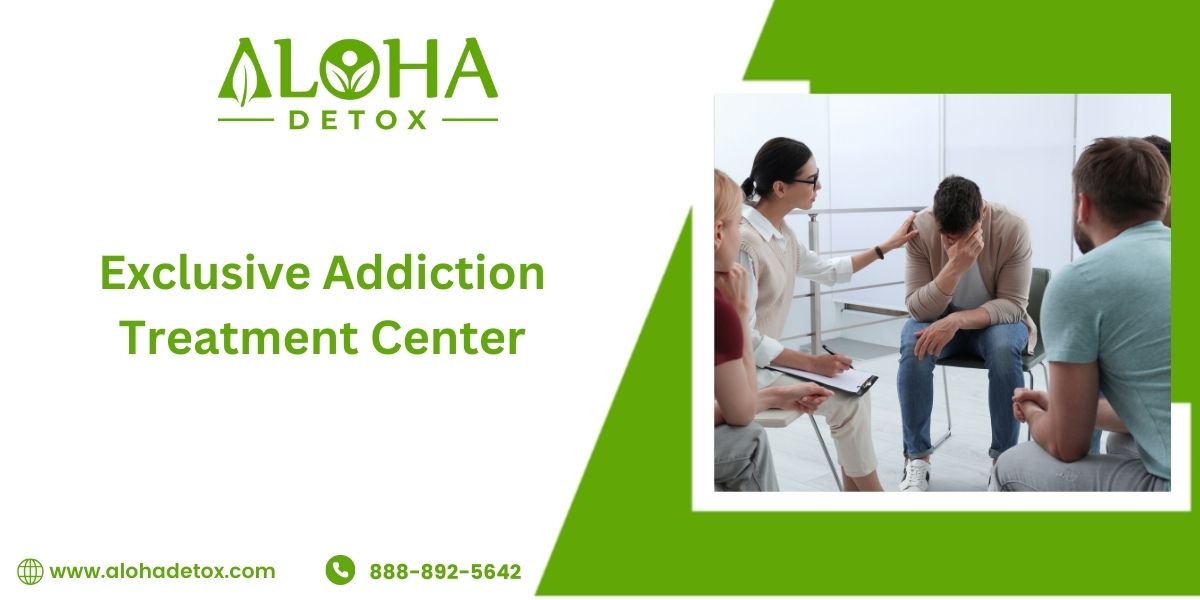
Learn 5 Stages of Addiction and Get Treatment at Exclusive Addiction Treatment Center
Exclusive Addiction Treatment Center
Addiction is a complex disease and often affects millions of people worldwide. The process of addiction is typically characterized by a series of stages, each of which presents unique challenges for individuals struggling with substance abuse. Understanding the five stages of addiction is an essential step in identifying and treating addiction effectively. At Aloha Detox, an Exclusive Addiction Treatment Center, we help you to sustain your recovery journey.
First Use
The first stage of addiction is experimentation. During this time, people will try a product for the first time out of curiosity or relationship.
Although experimentation does not always lead to addiction, it is an important part of the path to drug addiction. For some, the lure of regular use leads to the second phase of addiction: regular use.
Regular Use
In the regular use stage, individuals begin to use a substance regularly. This may involve using the substance in social situations or as a coping mechanism to deal with stress, anxiety, or other issues. As individuals continue to use a substance regularly, their tolerance may increase, leading to the need for higher doses to achieve the desired effect.
Problematic Use
The third stage of addiction is problematic use. At this stage, individuals begin to experience negative consequences related to their substance use, such as financial problems, relationship issues, or declining health. Despite these consequences, individuals may continue to use a substance, often feeling unable to control their use.
Dependence
The fourth stage of addiction is dependence. Dependence occurs when the body becomes dependent on a substance to function normally. Individuals at this stage may experience withdrawal symptoms when attempting to quit or reduce their use of a substance. Dependence can be both physical and psychological, making it difficult to overcome without professional help.
Addiction
The final stage of addiction is addiction itself. At this stage, individuals are unable to stop using a substance despite the negative consequences it has on their lives. Addiction can lead to job loss, legal problems, and even life-threatening health conditions. Overcoming addiction requires a comprehensive approach that includes detoxification, counseling, and support from friends and family.
Exclusive addiction treatment centers and exclusive rehab centers offer comprehensive programs designed to help individuals overcome addiction. These facilities provide a supportive environment where individuals can receive medical care, counseling, and other resources to address the underlying causes of addiction and develop strategies for long-term recovery.
Exclusive addiction treatment centers and exclusive rehab centers often a variety of treatments, including individual and group therapy, medication, and integrative activities such as yoga, meditation, and art therapy. Many places also offer after-sales services to encourage people to return to daily life and stay sober.
Conclusion
In summary, understanding the five stages of addiction is a necessary step to effectively identify and treat it. Although addiction can be difficult to overcome, exclusive addiction treatment centers and exclusive rehab centers provide comprehensive services designed to help people overcome addiction and recover. If you or a loved one is struggling with drug addiction, don’t be afraid to seek help. With support and help, they can learn to overcome addiction and live a healthy and fulfilling life.
Aloha Detox, Exclusive Addiction Treatment Center is a facility that offers a broad range of services and therapies to individuals who are struggling with substance abuse or addiction. These centers typically provide a holistic approach to addiction treatment that addresses the physical, emotional, and mental aspects of the disease.
Our Exclusive addiction treatment centers include detoxification, individual and group therapy, behavioral counseling, medication-assisted treatment, and aftercare planning. The goal of these centers is to help individuals achieve and maintain sobriety, improve their overall health and well-being, and regain control of their lives.
